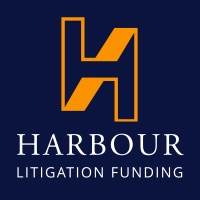10 January, 2018
As litigators working with insolvency practitioners internationally, a challenge that we often face is to bridge the “investigation gap” between the identification of circumstances that warrant investigation and obtaining the evidence necessary for the prosecution of meritorious claims.
The liquidator’s position
While each case has its own unique circumstances, it is not unusual in a Hong Kong insolvency that on appointment, a liquidator will be in an invidious position where:
- the available books and records of the company are non-existent or grossly inadequate
- there are no immediately realisable assets, because the operating business of the company was in the PRC and is subject to claims by domestic creditors
- very substantial amounts of debt and equity had been raised by the company, giving rise to signi cant claims, but with nothing to show for it
- there are credible allegations of fraud, misconduct or false accounting that warrant investigation (for example, following a short- seller report or quali ed audit) and
- creditors are unwilling or unable to provide funding for investigations.
Challenges
The document gathering and investigation exercise that is required in these types of situations to piece together the affairs of a company from a “ground zero” starting point is a significant and costly exercise that requires close collaboration between the liquidator and lawyers. This can involve numerous court applications to obtain documents under compulsion, in multiple jurisdictions given the common use of entities incorporated in the BVI, Cayman Islands and elsewhere in Hong Kong.
The pursuit of these investigations serves both the interest of creditors in the recovery of assets, and the broader public interest of investigating the causes of corporate collapses and the conduct of those responsible.1
Funding these investigations is however a significant issue when there are no readily realisable assets:
- If the company is HKEx listed, it may be possible to obtain funds from a restructuring of the listing. However, the restructuring process takes years and there is no guarantee of success. Delayed investigations are also less likely to be effective and risk the loss of claims through expiry of limitation periods.
- It is not a realistic commercial option for insolvency practitioners and lawyers to “self-fund” investigations by forbearance on fees in a large case. Legal practitioners in Hong Kong are prohibited from acting on a US style contingency fee basis. While insolvency practitioners can be remunerated on the basis of a percentage of recoveries, this is not usual, with hourly charging being the prevalent market practice.
How to bridge this “investigation gap” between suspicious circumstances and the hard evidence required for litigation is therefore a serious and common issue in Hong Kong insolvencies.
A role for litigation funding
While litigation funding has traditionally been regarded as applicable to the funding of specific claims, the use of litigation funding for the investigation phase in appropriate cases is the logical next step in the development of litigation funding for the insolvency sector in Hong Kong.
As Ruth highlights in the above article, there is now a well-established body of law in Hong Kong that supports the availability of litigation funding for insolvent companies and their liquidators, notwithstanding that maintenance and champerty remain crimes and torts in Hong Kong2. Following the leading decision of the Court of Final Appeal in Unruh, litigation funding to liquidators has been held to be lawful as either an incident of the liquidator’s statutory power to sell the company’s assets3 or as a broader exception to the prohibition of maintenance and champerty under access to justice considerations4.
The use of litigation funding in the insolvency context in Hong Kong is not however unquali ed. The Hong Kong Courts remain concerned that litigation funding should not be used as a vehicle for oppression of defendants or exploitation of plainti s. As demonstrated by Re Company A, for the Court to sanction a funding agreement in insolvency on access to justice grounds, the Court will need to be satisfied that:
- the funding is necessary and no creditors with a pre-existing interest are willing to fund investigations
- the liquidator will remain in control of the investigations and litigation without undue influence from the funder and
- it is appropriate for the investigations and any claims identified be pursued.
There are a number of instances where the Hong Kong Court has sanctioned agreements for the provision of funding to an insolvent company to undertake initial investigations, before any claims were identified, on the basis that the funder would then also fund any su cient prospective claims arising from the investigation process.
However, the degree of speculation inherent in the funding of investigations, and the corollary effect this has on the expected structure and quantum of the funder’s remuneration, should be considered in light of the Court’s supervisory jurisdiction and the judicial aversion to the encouragement of speculation on law suits. The funding will still need to achieve the objective of obtaining a return for creditors that would not otherwise be available.
The increased use of litigation funding in this way in appropriate circumstances is consistent with both the private and public interests served by the insolvency practitioner. It bridges the “information gap” by providing a means for recoveries that may not otherwise be obtained and facilitates the proper investigation of the a airs of an insolvent company in the broader public interest.
- In re Pantmaenog Timber Co Ltd [2004] 1 AC 158 at [77] per Lord Walker; Kong Wah Holdings Ltd v Grande Holdings Ltd (2006) 9 HKCFAR 766 at [23] per Lord Millett NPJ.
- Unruh v Seeberger [2007] 2 HKLRD 414 (“Unruh”) at [78] per Ribeiro PJ; Winnie Lo v HKSAR (2012) 15 HKCFAR 16 at [22] per Bokhary PJ.
- For example, Re Cyberworks Audio Video Technology Ltd [2010] 2 HKLRD 1137, applying the third of the three ‘exceptional cases’ formulated in Unruh at [98] per Ribeiro PJ.
- Remedy Asia Ltd v Yick Shing Contractors Ltd [2014] HKCFI 1147; Re Company A [2015] HKCFI 1823, both applying the second of the three ‘exceptional cases’ formulated in Unruh at [95]-[97] per Ribeiro PJ.
By Jason Karas, Principal and Founder, Lipman Karas.
For further information, please contact:
Ruth Stackpool-Moore, Director of Litigation Funding / Head of Harbour Hong Kong
ruth.sm@harbourlf.com

.jpg)





